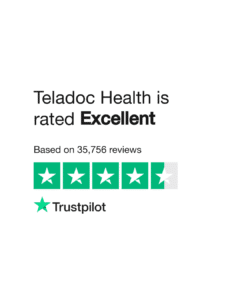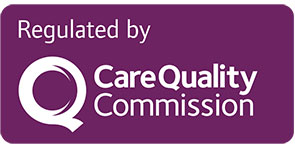Following on from ‘Avoid Fad Diets this January’, our Head of Nutrition Sarah West focuses on Veganuary, the popular no meat month that follows the Christmas period. We consider vegan health benefits as well as our recommendations on what to eat and avoid in January and beyond.
Five vegan facts
- The number of vegans in the UK has increased 350% over the past 10 years – one of Britain’s fastest growing lifestyle movements
- The Vegan Society attributes rapid growth to the health and environmental benefits of veganism as well as the treatment of animals in meat and dairy industries
- A total of 8.6 million people follow a meat-free diet (16% of UK adults).
- Young people aged 15-34 make up 42% of vegans, a demographic who favour more ethical and compassionate diets
- Veganuary is a popular New Year’s resolution – a record 3 million people ‘signed up’ and committed to do it in 2025
But is cutting out this whole food group healthy?
The answer is yes; as long as you balance it carefully! Well-planned vegan diets can contain all the nutrients our bodies need. The British Dietetic Association deems a balanced vegan diet as suitable for every age and stage of life, particularly for those previously eating excesses of fat, sugar or salt within processed foods. Plant-based diets have been linked to lower blood pressure and cholesterol and reduced risk of heart disease and diabetes as well reduce some cancers.
So, what should I eat?
Start with protein, then (wholemeal) carbs and colour. Protein is necessary for the proper growth, development, and repair of all tissues in the human body. Whilst many believe meat is the main source, it’s generally easier to meet our bodies’ protein requirements than people think, as long as you include a protein source with each and every meal.
Include a serving of these with each meal – beans, lentils, chickpeas, soya, nuts, seeds, quinoa, as well as considering buckwheat, hempseed and blue-green algae.
Vegans should consume a ‘rainbow’ of plant foods to access a diverse range of nutrients. Eat the whole fruit or vegetable where possible as most of the phytochemicals in a plant are in its skin, or just underneath it!
Micronutrients to know about
Nutrient
|
Information
|
Suggestion
|
| B12 |
This is essential. The only reliable vegan sources of B12 are fortified foods and B12 supplements
Most vegans consume enough B12 to avoid anaemia and nervous system damage, but many do not get enough to minimise potential risk of heart disease or pregnancy complications |
Take one B12 supplement daily providing at least 10 micrograms / a weekly B12 supplement providing at least 2000 micrograms
|
| Iron |
Vegan diets can be high in iron, although the form of iron from plants is not as ‘bioavailable’ as the iron in meat (beans, pulses, nuts, seeds, dried fruits) |
Absorption can be boosted by combining plant-based iron with foods rich in vitamin C
Avoid drinking tea or coffee with meals |
| Calcium |
There is an association between veganism and lower bone density
Generally, plant-based alternatives have calcium added, but organic varieties cannot legally be fortified
|
Look for milk that contains at least 120mg of calcium per 100ml
Ensure your daily diet contain at least two portions of calcium-rich food / drink (calcium set tofu, dried fruit, rocket, broccoli and kale, nuts and seeds) |
| Iodine |
An essential nutrient for metabolism and growth yet many aren’t consuming enough
Iodine deficiency has re-emerged in the UK with 15% of teenagers not meeting their requirements
|
A 200ml glass of cow’s milk provides 40% of iodine needs for the day. The other main source in the diet is white fish
Plant foods containing iodine
include wholegrains, green beans, courgettes, kale, spring greens, watercress, strawberries and organic potatoes with skin |
| Omega 3 Fats |
The three main, essential omega-3 fatty acids are:
EPA and DHA (found mainly in oily fish)
ALA (from plant sources)
Only 5% of ALA is converted into EPA and less than 0.5% into DHA |
Best obtained from microalgae supplements
Oily fish contain EPA and DHA from eating microalgae in the ocean so a very direct source
Still eat flaxseeds, walnuts and chia seeds because your body still requires ALA |
What to avoid
Becoming a vegan does not automatically guarantee good health. Along with the growth in veganism, there follows an increase in vegan-friendly processed foods. Watch out for;
- Regular consumption of sugar-sweetened drinks and convenience products based on refined carbohydrates. These have been linked with increased risk of cardiovascular disease
- Meat substitutes are a good source of protein but often poor sources of iron, zinc and B12 compared to plant proteins (beans, chickpeas, lentils etc.)
- Some vegan cheeses are highly processed and made primarily from coconut oil, starches and flavourings. We recommend consuming vegan cheese made from protein rich sources such as cashew nuts, rather than coconut oil (high in saturated fat but with zero protein)
Final checklist to be a healthy vegan for a month or a lifetime
- As with any dietary pattern, eating a balanced diet is important
- Changing to a vegan way of eating requires careful planning to ensure you are obtaining the right balance of nutrients
- Be aware of the potential dietary deficiencies, particularly given that diet-related health concerns are on the increase around the globe
Find out more about Teladoc’s personalised nutrition service
Read patient stories in our case studies









